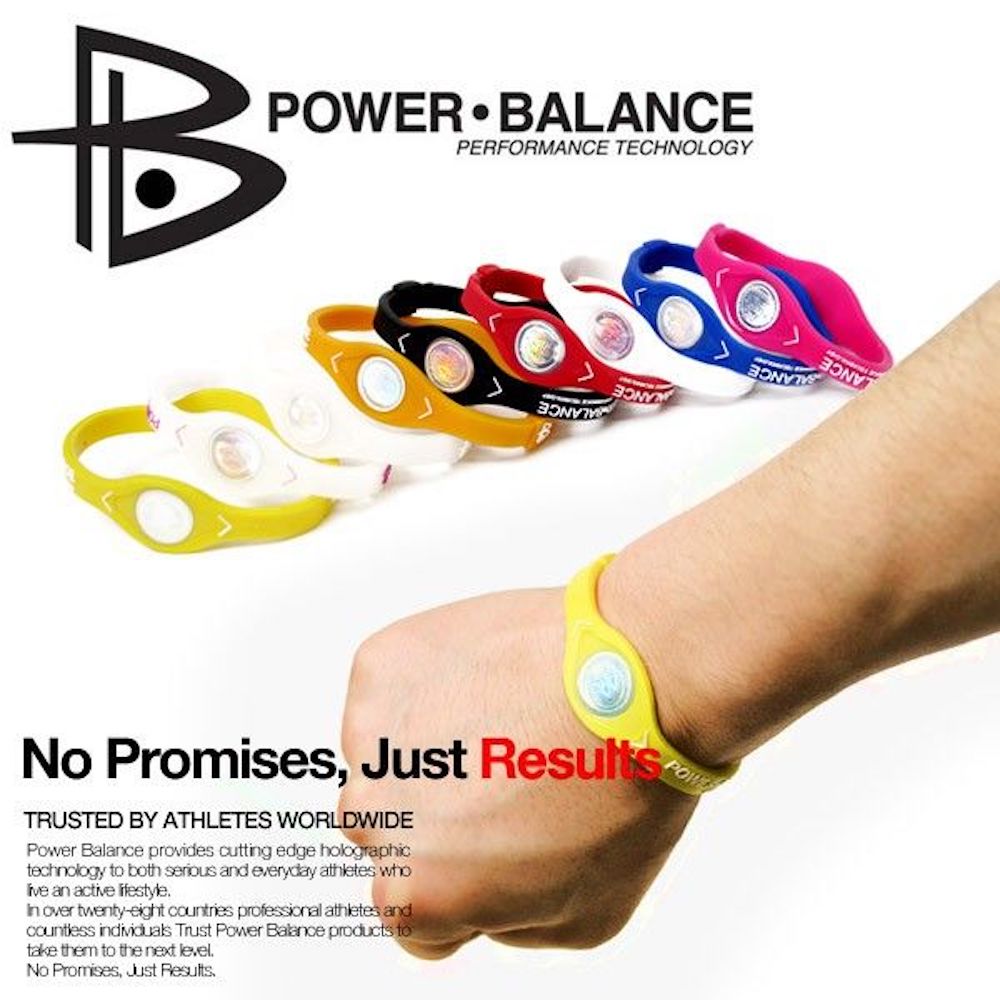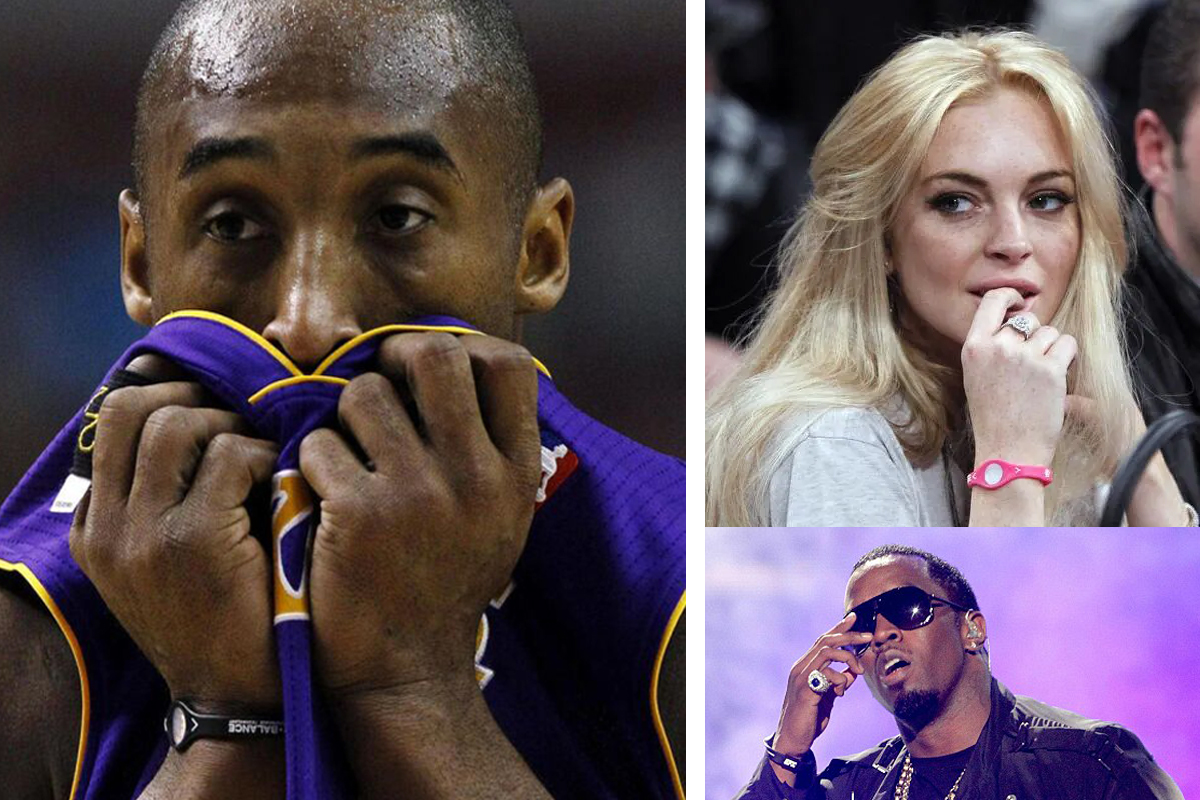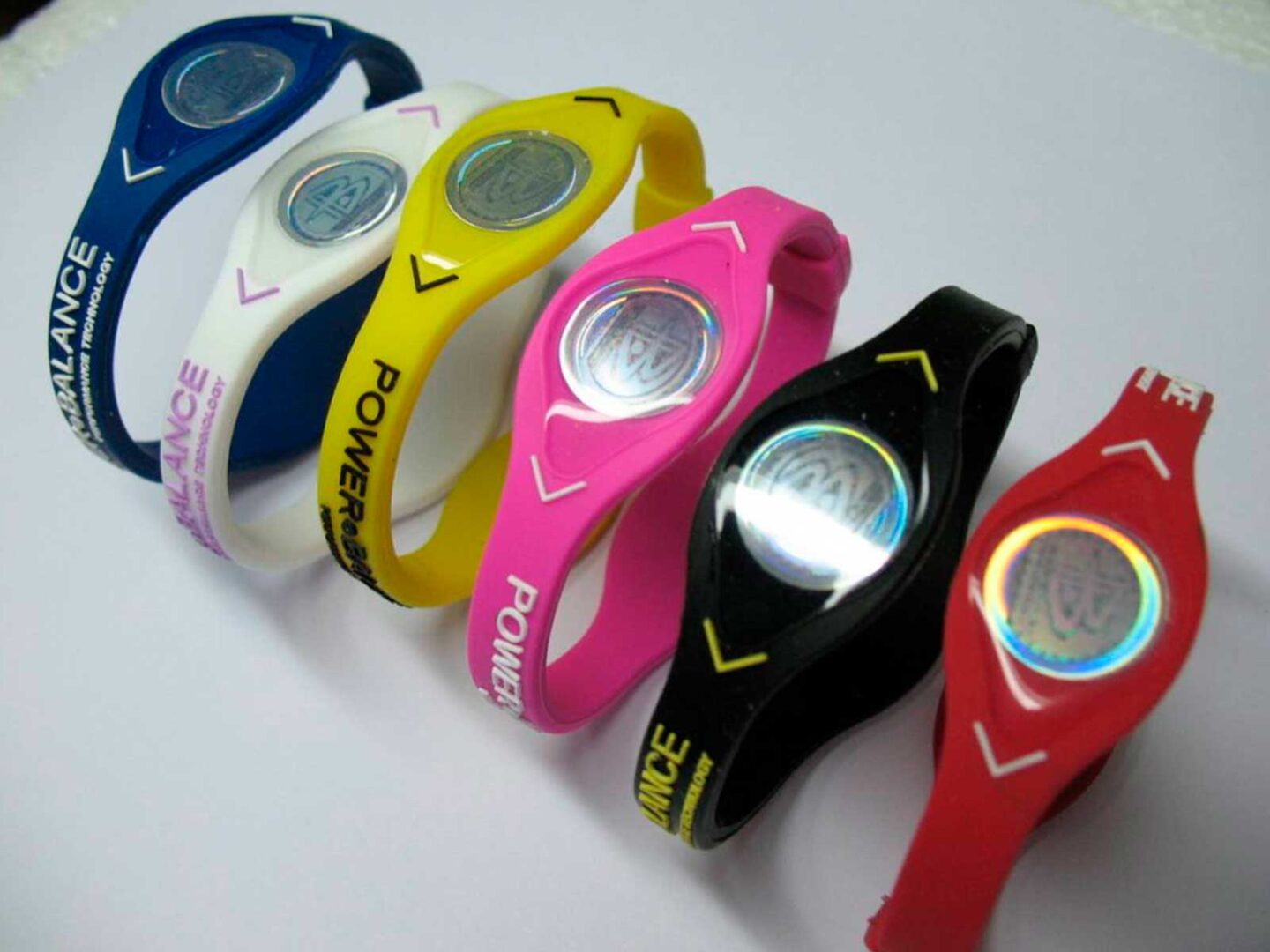Power Balance caused a great impact, both because of the thousands of sales and staunch defenders, and because of the reactions of those who criticised the lack of scientific rigour of its advertising.
The year was 2010, at the height of the technology boom. Apple was preparing to present its latest invention, the iPad. That same year saw the birth of Kickstarter, Google’s driverless car and a series of inventions that would revolutionise our lives in a few years’ time. Here, in the midst of this tangle of technology, wires and microchips, a plastic bracelet with miraculous properties was born. It is Power Balance.
It was the trend of the summer and sold like hot cakes at the time. Power Balance bracelets were the latest fashion and among the cool crowd you are nobody if you don’t have one. First we saw celebrities wearing them on their wrists and then they jumped into the arms of the fashion victim. According to the manufacturers, just by wearing them you could “increase strength, flexibility and endurance”.

The company claims that it “brings the body into a state of harmony and balance as it was before pollution from chemicals, fast food, lack of exercise and stress”. All thanks to holograms that, they claim, “react positively with the body’s energy field”. This led to a high number of sales, amounting to 300,000.
The Local Consumer Protection Commission intervened after a review committee found that the company’s claims violated the code for the promotion of medical and therapeutic goods to the extent that the Therapeutic Goods Complaints Resolution Panel asked Power Balance to remove any misleading claims about its products.
Power Balance would also incur in another practice prohibited by the Royal Decree, by offering “testimonials of famous people or people known to the public”. The company’s advertising features celebrities such as tennis player Manolo Santana, Real Madrid footballer Guti, runner Eva Castro, basketball player Shaquille O’Neal and Formula 1 driver Rubens Barrichello. The company had to declare bankruptcy.
Despite having evolved over the last thirteen years – the company has gone back to talking about the mysterious benefits of its products – we are now all a little less stupid to believe that a piece of silicone is really capable of making us run faster. What other products do you think are sold to us as miraculous and are not? Let us know in the comments.

Sigue toda la información de HIGHXTAR desde Facebook, Twitter o Instagram
